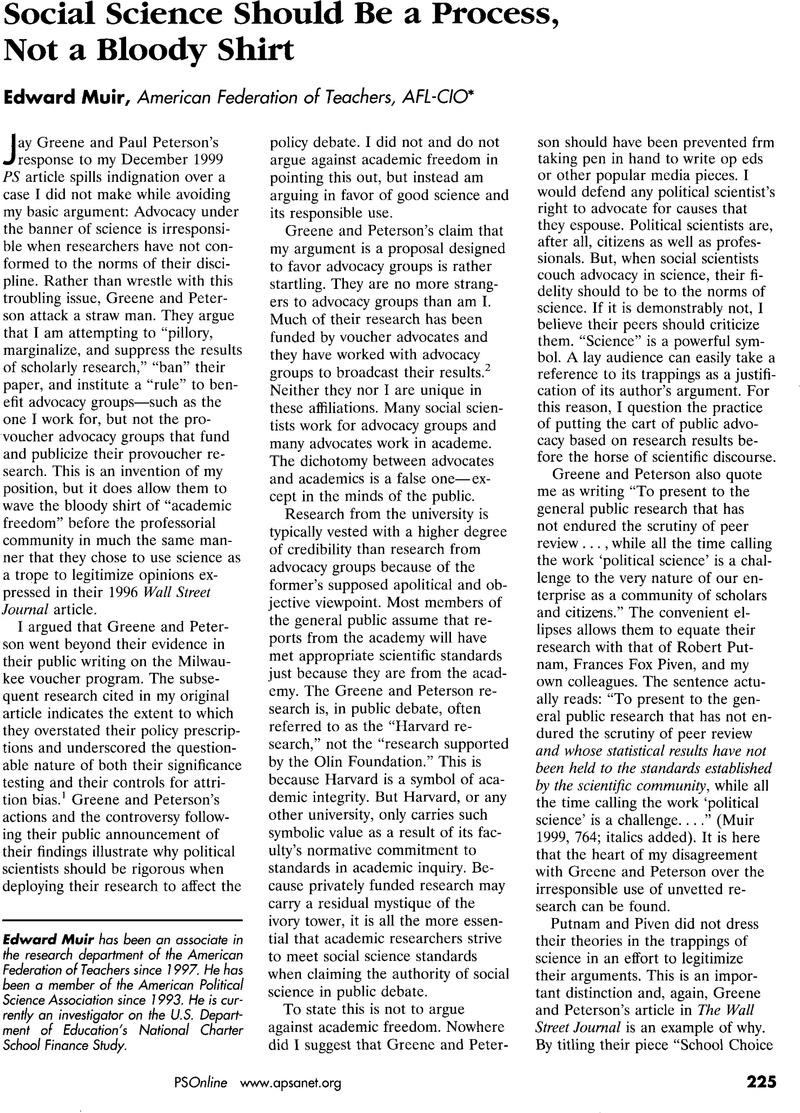No CrossRef data available.
Article contents
Social Science Should Be a Process, Not a Bloody Shirt
Published online by Cambridge University Press: 02 September 2013
Abstract
An abstract is not available for this content so a preview has been provided. As you have access to this content, a full PDF is available via the ‘Save PDF’ action button.

- Type
- News
- Information
- Copyright
- Copyright © The American Political Science Association 2000
Footnotes
*
The views expressed in this article are those of the author and not of the American Federation of Teachers.
References
Metcalf, Kim. 1998. “Advocacy in the Guise of Science: How Preliminary Research on the Cleveland Voucher Program Was ‘Reanalyzed’ to Fit a Preconception.” Education Week
18(3): 34, 39.Google Scholar
Muir, Edward. 1999. “They Blinded Me with Political Science: On the Use of Nonpeer-Reviewed Research in Education Policy.” PS: Political Science and Politics
32(December): 762–64.Google Scholar
Peterson, Paul. 1990. “Monopoly and Competition in American Education.” In Choice and Control in American Education, Vol. 1, ed. Clune, William H. and Witte, John F.. New York: Falmer Press.Google Scholar
Peterson, Paul, and Greene, Jay. 1996. “School Choice Data Rescued from Bad Science.” The Wall Street Journal, August 14.Google Scholar
Peterson, Paul, and Noyes, Chad. 1996. “Under Extreme Duress, School Choice Success” <http://data.fas.harvard.edu/pepg/index.htm>. Program on Educational Policy and Governance Research Paper. Accessed: February 18, 2000.Google Scholar
Putnam, Robert. 1997. “Bowling Alone: Democracy in America at Century's End.” In Democracy's Victory and Crisis, ed. Hadenius, Alex. New York: Cambridge University Press.Google Scholar
Rouse, Cecelia. 1998. “Private School Vouchers and Student Achievement: An Evaluation of the Milwaukee Parental Choice Program.” The Quarerly Journal of Economics
113(May): 553–602.CrossRefGoogle Scholar
Witte, John. 1996. “A Reply to Greene, Peterson and Du: The Effectiveness of School Choice in Milwaukee: A Secondary Analysis of Data from the Program's Evaluation.” Presented at the Annual Meeting of the American Political Science Association, San Francisco.Google Scholar


